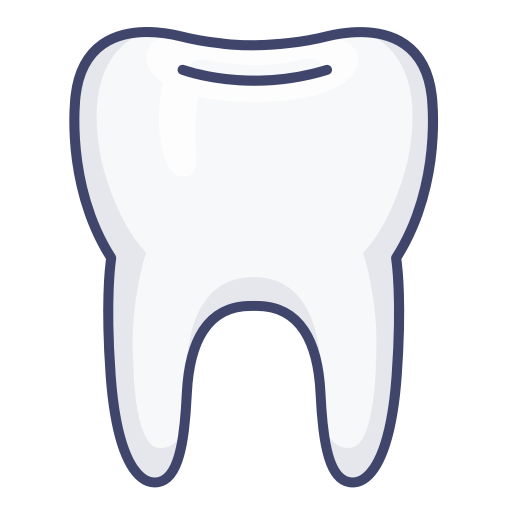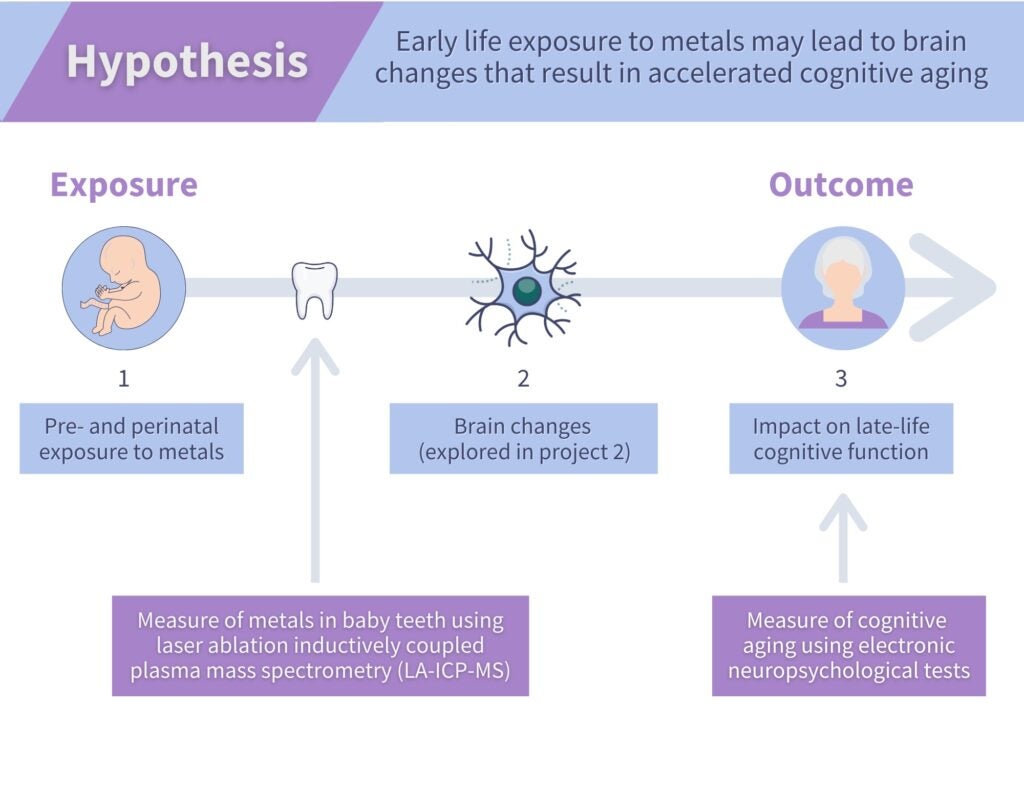MEMCARE-SRC
The Metals and Metal Mixtures, Cognitive Aging, Remediation and Exposure Sources (MEMCARE) Superfund Research Center aims to understand how metals and metal mixtures contribute to cognitive decline in older age and the biological mechanisms underlying these effects; and to develop new ways to detect and remove metal contaminants in drinking water sources.
677 Huntington Avenue
Boston, MA 02115
Project 1: Understanding exposures and outcomes

Early life metal exposures and cognitive aging
Previous studies on animals suggest a relationship between early life exposure to metals and cognitive decline in later life. The St. Louis Baby Teeth Study provides a unique opportunity to precisely measure pre- and post-natal exposure to metals.
Project Goals
The participants of the original St. Louis Baby Teeth Study were children in the 1950s and 1960s and are now much older. We are able to use their previously collected baby teeth to:
- Explore associations between early-life metal exposures and cognitive function in older age.
- Determine possible epigenetic mechanisms for such associations.

Our Approach
This is a cohort study of a subset of participants in the original St. Louis Baby Tooth (SLBT) study who donated their baby teeth in the 1950s and 1960s and are now in their 60s and 70s. We have located several thousand of these tooth donors to recruit them for this study.
- To determine the relationship between early life metal exposures and late life cognitive function, we correlate concentrations of metals in their baby tooth enamel (measured using laser-ablation inductively coupled plasma mass spectrometry, LA-ICP-MS), with their performance in an online cognitive test battery.
- To explore possible epigenetic mechanisms for observed associations, we will collect blood samples from a further subset of participants to examine the relationship of EV miRNA expression (see Project 2) to early-life exposure to metals and the results of the cognitive tests.

Project Team
Recent Publications
2025
Andrea L Roberts, Xinye Qiu, Kaleigh A McAlaine, Laura T Germine, Ran S Rotem, and Marc G Weisskopf. 2025. “Early-life cognitively stimulating activities and late-life cognitive function in the St. Louis Baby Tooth Later Life Health Study.” Sci Rep, 15, 1, Pp. 210.
2024
Julia A Bauer, Tracy Punshon, Matthew N Barr, Brian P Jackson, Marc G Weisskopf, Felicitas B Bidlack, Modupe O Coker, Janet L Peacock, and Margaret R Karagas. 2024. “Deciduous teeth from the New Hampshire birth cohort study: Early life environmental and dietary predictors of dentin elements.” Environ Res, 256, Pp. 119170.
Justin G Farmer, Aaron Specht, Tracy Punshon, Brian P Jackson, Felicitas B Bidlack, Charlotte A Bakalar, Rajarshi Mukherjee, Mary Davis, Dawnie W Steadman, and Marc G Weisskopf. 2024. “Lead exposure across the life course and age at death” Sci Total Environ, 927, Pp. 171975.
T Punshon, Julia A Bauer, Margaret R Karagas, Modupe O Coker, Marc G Weisskopf, Joseph J Mangano, Felicitas B Bidlack, Matthew N Barr, and Brian P Jackson. 2024. “Quantified retrospective biomonitoring of fetal and infant elemental exposure using LA-ICP-MS analysis of deciduous dentin in three contrasting human cohorts.” J Expo Sci Environ Epidemiol.
2023
Xinye Qiu, Andrea L Robert, Kaleigh McAlaine, Luwei Quan, Joseph Mangano, and Marc G Weisskopf. 2023. “Early-life participation in cognitively stimulating activities and risk of depression and anxiety in late life.” Psychol Med, Pp. 1-9.
Michael Leung, Sebastian T Rowland, Brent A Coull, Anna M Modest, Michele R Hacker, Joel Schwartz, Marianthi-Anna Kioumourtzoglou, Marc G Weisskopf, and Ander Wilson. 2023. “Bias Amplification and Variance Inflation in Distributed Lag Models Using Low-Spatial-Resolution Data” Am J Epidemiol, 192, 4, Pp. 644-657.
2021
Mayuri Bhatia, Aaron J Specht, Vallabhuni Ramya, Dahy Sulaiman, Manasa Konda, Prentiss Balcom, Elsie M Sunderland, and Asif Qureshi. 10/5/2021. “Portable X-ray Fluorescence as a Rapid Determination Tool to Detect Parts per Million Levels of Ni, Zn, As, Se, and Pb in Human Toenails: A South India Case Study” Environ Sci Technol, 55, 19, Pp. 13113-13121.